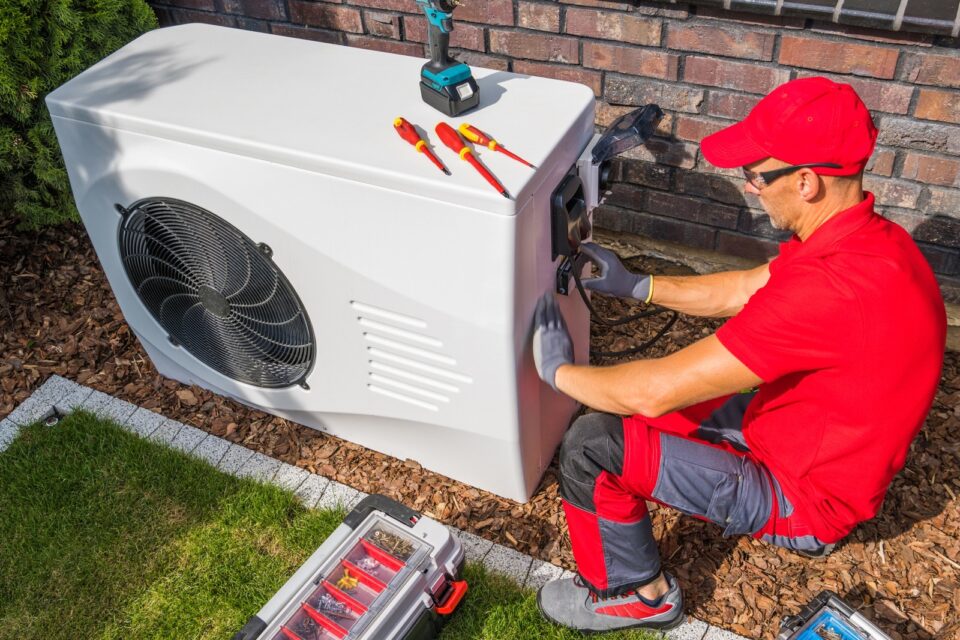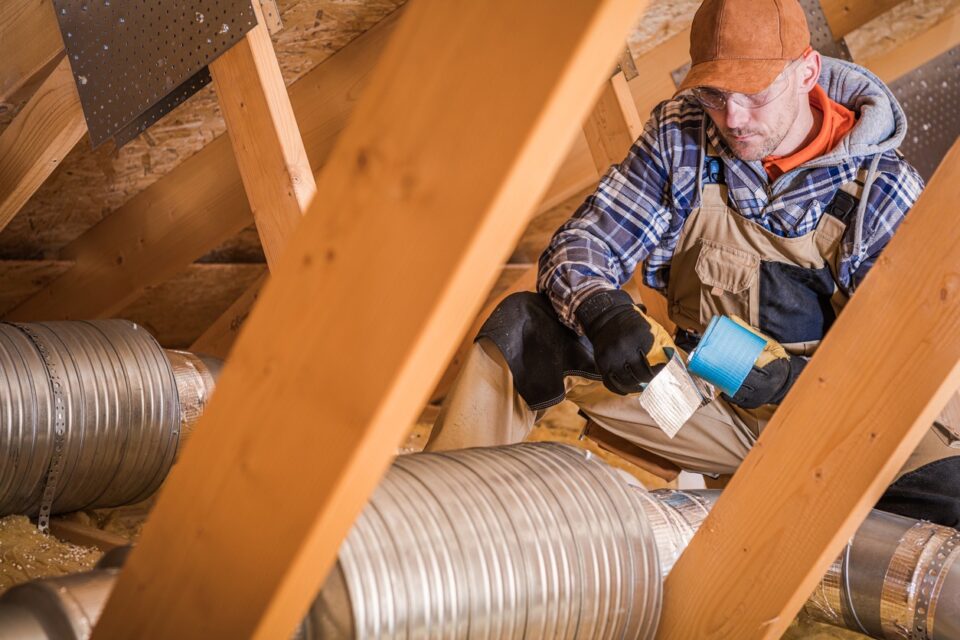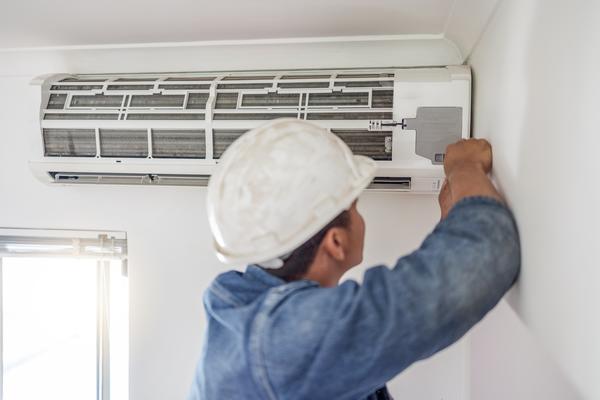Achieving a peaceful living environment hinges on effectively managing noise levels in HVAC (Heating, Ventilation, and Air Conditioning) systems. Excessive noise from HVAC equipment can disrupt the tranquility of your home, disturb sleep, and create an uncomfortable atmosphere. These disturbances can be mitigated in several ways.
Proper installation by certified professionals following manufacturer guidelines minimizes vibrations and noise. Regular HVAC maintenance ensures that components remain clean and well-lubricated, reducing operational noise. Soundproofing measures, such as adding acoustic insulation or materials, can be applied around HVAC units, ductwork, and walls to absorb and block noise.
When replacing HVAC units, opt for models designed for quieter operation, featuring variable-speed fans and insulated compressors. Inspecting and repairing ductwork can address issues that create noise as air flows through them.
Additionally, strategically placing HVAC equipment away from living areas and using sound barriers, like walls or landscaping, can shield outdoor units from your living spaces. By implementing these noise management strategies, you can create a tranquil home environment conducive to relaxation and well-being.
How to Reduce HVAC Noise at Home
Reducing HVAC (Heating, Ventilation, and Air Conditioning) noise at home is essential for creating a peaceful living environment. Here are effective strategies to minimize HVAC noise:
- Proper Installation: Ensure your HVAC system is correctly installed by certified professionals following manufacturer guidelines. Proper installation minimizes vibrations and noise from the outset.
- Regular Maintenance: Schedule routine HVAC maintenance to keep components clean and well-lubricated. Well-maintained systems tend to operate more quietly and efficiently.
- Soundproofing: Consider adding acoustic insulation or soundproofing materials around HVAC units, ductwork, and walls. These materials absorb and block noise, reducing its transmission into living spaces.
- Upgraded Equipment: Opt for models designed for quieter operation when replacing HVAC units. Look for features like variable-speed fans and insulated compressors, which can significantly reduce noise levels.
- Ductwork Inspection: Inspect and repair ductwork for any loose or damaged components that may create noise as air flows through them. Properly sealed and insulated ducts can minimize noise.
- Strategic Placement: Choose strategic locations for HVAC equipment. Placing outdoor units away from living areas and bedrooms can reduce noise exposure.
- Sound Barriers: Install sound barriers, such as walls, fences, or landscaping, to shield outdoor units from your living spaces.
Implementing these strategies can significantly reduce HVAC reducing noise and improving home comfort.
Can noisy HVAC affect sleep quality?
Yes, noisy HVAC (Heating, Ventilation, and Air Conditioning) systems can unquestionably affect sleep quality. Sleep is essential to health, and disruptions from HVAC noise can have significant consequences.
A noisy HVAC system’s constant humming, clanking, or rattling can lead to fragmented sleep patterns. Even if it doesn’t fully wake you up, it can briefly wake you awake during the night, disrupting the different stages of sleep, including deep, restorative sleep.
This fragmented sleep can reduce sleep duration, as it may prevent you from falling back asleep or cause you to wake up too early.
Over time, chronic sleep disruptions from noisy HVAC systems can contribute to various health issues, including fatigue, irritability, decreased cognitive function, and even long-term health problems.
Sleep quality might be greatly compromised by noisy HVAC systems, making it crucial to address and mitigate noise issues for a more restful and rejuvenating sleep experience.
Are there quiet HVAC options available?
Yes, quiet HVAC (Heating, Ventilation, and Air Conditioning) options are available for homeowners seeking a more peaceful living environment. More modest HVAC systems are designed with noise reduction in mind, incorporating features and technologies to minimize operational noise. Here are some more modest HVAC options to consider:
- Variable-Speed Systems: HVAC units with variable-speed fans can adjust their speed to match the current heating or cooling demand. This improves energy efficiency and reduces noise levels when operating at lower rates.
- Sound-Insulated Compressors: Some HVAC systems come equipped with sound-insulated compressors that dampen noise during operation. This feature is particularly effective in reducing noise from the outdoor unit.
- Ductless Mini-Split Systems: Ductless mini-split HVAC systems are known for their quiet operation because they eliminate the noise associated with traditional ductwork. Indoor units are typically soft and unobtrusive.
- High-Efficiency Models: High-efficiency HVAC units often produce less noise because they require less energy. These models may feature advanced components designed for quieter performance.
- Professional Guidance: When selecting a new HVAC system, consult a technician. They can recommend models that align with your desire for a quieter living space.
Investing in quieter HVAC options allows you to enjoy a more peaceful home environment with reduced operational noise from your heating and cooling system.
What’s the cost of noise-reduction solutions?
The cost of noise-reduction solutions for your HVAC system can differ widely based on the type and extent of improvements needed. Noise-reduction solutions aim to create a quieter living environment and can encompass various strategies and expenses. Here are some cost estimates for common noise-reduction solutions:
- Proper Installation: Ensuring adequate installation and isolation of the HVAC system from the building structure can cost anywhere a few hundred to a few thousand dollars, subject to the intricacy of the facility.
- Regular Maintenance: Routine HVAC maintenance, including cleaning and lubricating components, generally ranges from $100 to $300 per visit. This cost includes tasks that ensure optimal system performance and noise control.
- Soundproofing Materials: The cost of acoustic insulation or soundproofing materials depends on the size of the area to be treated and the specific materials used. Basic materials might cost a few hundred dollars, while more extensive soundproofing projects can cost several thousand dollars.
- Upgraded Equipment: Quieter HVAC units with advanced features can cost more upfront than standard models. Expect to pay a 10% to 25% premium for quieter, high-efficiency equipment.
- Ductwork Inspection and Repair: The cost of ductwork inspection and repair can range from $100 to $1,000 or more, depending on the extent of repairs needed.
- Strategic Placement: Relocating outdoor HVAC units or adding sound barriers may involve landscaping costs or construction costs, which can differ greatly depending on the specific project requirements.
It’s essential to consult with HVAC professionals to assess your specific noise issues and develop a cost-effective plan to address them. They can provide accurate estimates and recommendations customized to your needs and budget, helping you triumph a quieter and more comfortable living space.
Do HVAC systems need regular maintenance for noise control?
Yes, HVAC systems need regular maintenance for noise control, performance, energy efficiency, and lifetime. Regular maintenance helps your HVAC system work quietly and smoothly.
Here’s how regular maintenance contributes to noise control:
- Component Lubrication: Proper lubrication of moving parts, such as fan motors and bearings, reduces friction and associated noise. Lubricated components run more quietly and efficiently.
- Cleaning: Cleaning coils, filters, and components helps maintain airflow and prevents strain on the system, reducing noise from overworking. Clean equipment operates more quietly.
- Tightening Connections: Loose or vibrating components can generate noise. Regular maintenance includes checking and drawing connections to minimize vibrations and the noise they can produce.
- Ductwork Inspection: Inspecting and sealing ductwork prevents air leaks and ensures efficient airflow, reducing noise from air turbulence as air moves through the ducts.
- Noise Assessment: During maintenance visits, HVAC professionals can assess the noise levels of your system and identify any unusual or concerning sounds, which can lead to timely repairs.
By investing in regular HVAC maintenance, you not only promote noise control but also extend the life of your system, enhance its efficiency, and improve indoor air quality. It’s a proactive approach to ensure a comfortable and quiet living environment, benefiting your well-being and your HVAC system’s performance.





